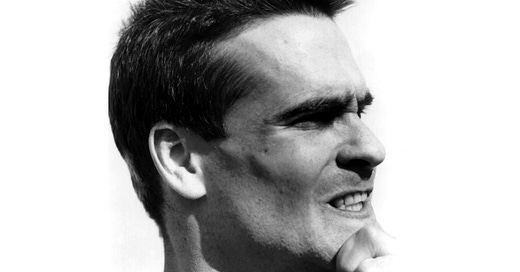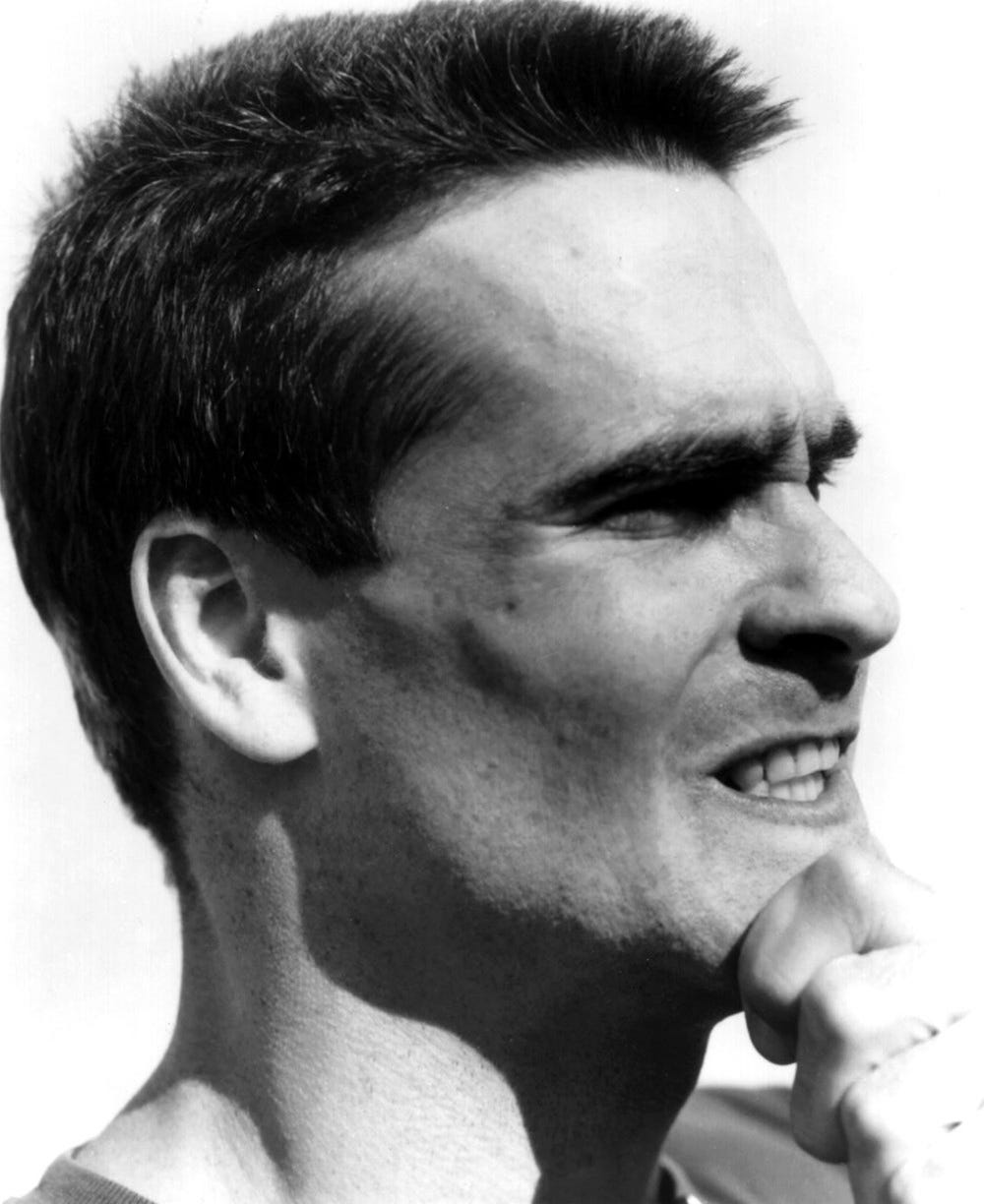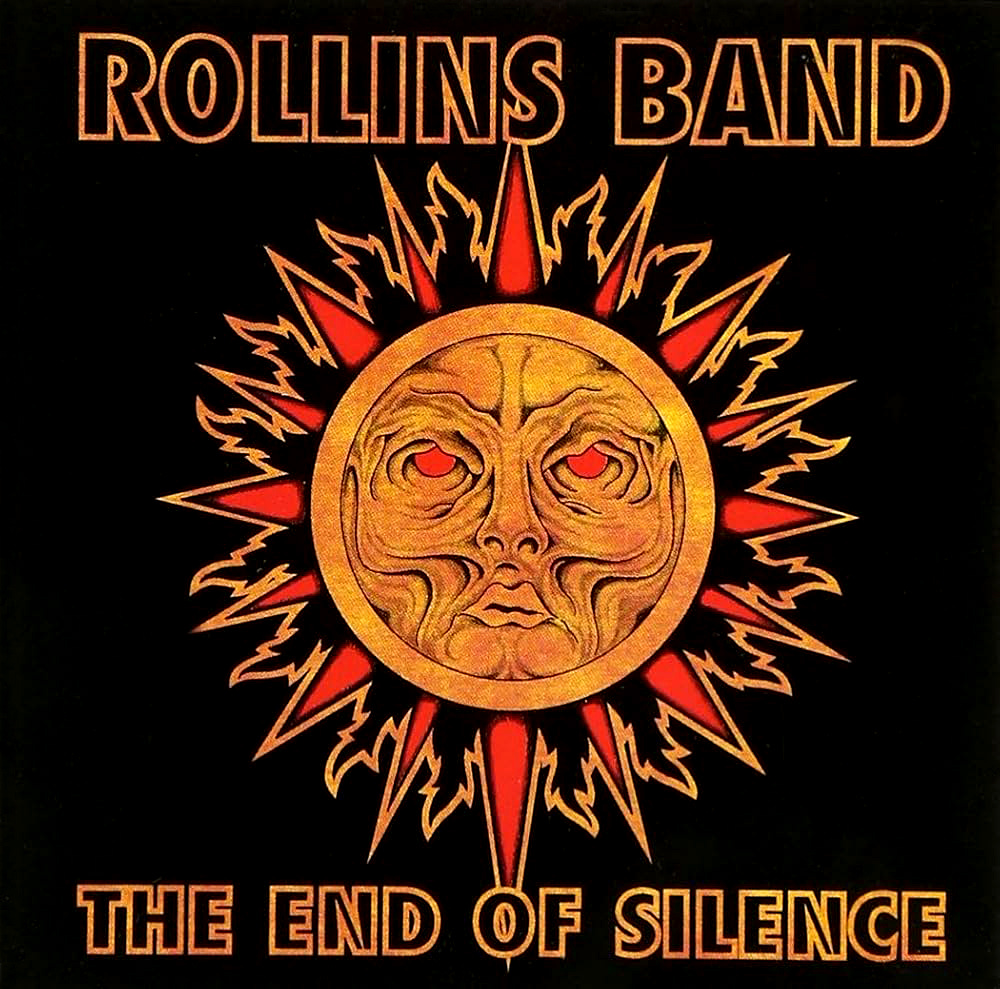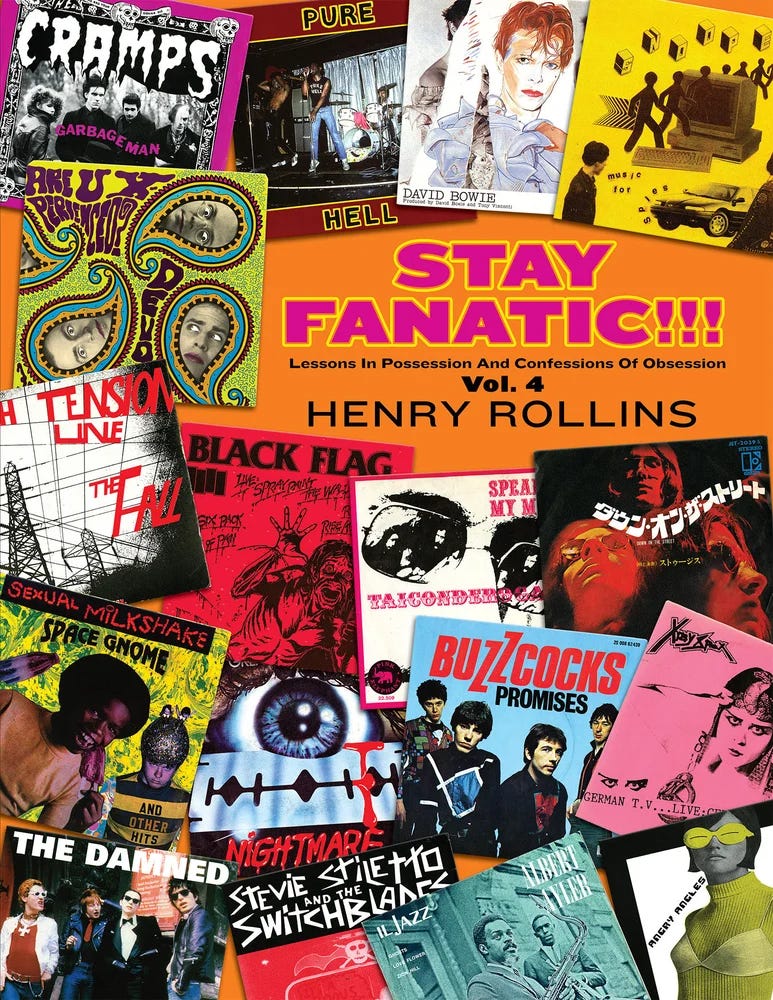The 'Alternating Currents' Legacy Interview: Henry Rollins
From 1992, on the cusp of mainstream breakthrough, its rage, fury and heartbreak for the once and future frontman of hardcore expressionism
Prologue
Henry Rollins, musician, songwriter, poet. He is not melodic, mainstream, or eloquent by his standards. Henry Rollins is in your face, all the time, all the way. He is on the phone from New York City, but please don’t be intimidated by his muscles, his tattoos, or his presence.
“It freaks people out sometimes, which has always been kind of strange to me. And I’ve always tried to understand it. People say weird things about how they think I’m gonna be before they meet me. Especially girls.”
Rollins is no stranger to attention, be it admiration from his adoring fans or curiosity from the multitudes that flocked to hear him and his band on last summer’s Lollapalooza tour. He’s seen it all. Now he has a chance to reach almost everyone in between with the Rollins Band The End Of Silence (Imago). Corporate America has finally gotten behind a man who says he’s “not into an image.”
“I only do music because I need a place to get what’s inside of me outside of me. I’m not a rock star. I don’t do any of this for the money, ‘cause there isn’t any. I don’t do it for the women, ‘cause I don't meet any. I don’t do it for the fame, ‘cause that’s tiresome bullshit. So I do it because I like to express myself.”
Which he does pretty well. The 31-year-old Rollins has been doing this for over a decade, including his 1981-86 stint as vocalist with the L.A. hard-core group Black Flag. Since 1987, he’s been touring and recording as the Rollins Band with guitarist Chris Haskett, bassist Andrew Weiss, drummer Sim Cain, and soundman/mixer Theo Van Rock. But don’t worry if you don’t get Rollins’ message; these guys don’t either.
“I’m damaged goods. I’m not slick. I’m not articulate. I have the capability of a meat cleaver. It does what it does very well, but it only does a few things. I’m kind of like the old, mean dog in the backyard: you kick it, it bites you. Otherwise, it leaves you alone.”
If you’re looking for the inspiration (if that term can be used) behind Rollins, you could read some of the lyrics on The End Of Silence: "The hatred you project / Does nothing to protect you / You leave yourself so exposed / You want to open up" (“Low Self Opinion); “I looked deep into your eyes / Saw men lying broken / Shattered at the bottom of your well” (“Almost Real”) and in “Just Like You” Rollins vents the anger toward his father. His inspiration? “The fact that I want to rip my dad’s throat out. That’s my big inspiration. People go, ’That's not very pleasant.’ Well, truth is like that.”
Rollins also has a deeper understanding of rap music, where some of his rage and desperation comes from. He admitted he learned a lot about this culture and way of life from lce-T during the Lollapalooza gigs from last year. Rollins called it “the gold chain thing” and related that an African-American male doesn’t have “the credibility I have by the color of my skin. He might not get the same respect that I would get by just being a white guy walking down the street.
“A black man sees all this and he wants respect, too. He’s a human being. So, a black man has to wear his equality. In order for them to be legit, they gotta flash gold. That’s just because things where we live are very fucked up. And after I listened to lce-T talk and hung out with him, then I got it.”
A surprise maybe to most is what Rollins does in his spare time. In New York, he had just come back from a three-month European tour and was looking forward to chilling in California, watching Hitchcock movies. In that context, he vehemently detests Hitchcockian-lover and director Brian DePalma, whose movies tend to brutalize women. It’s curious though that in a live set-up, that air of violence permeates his gigs with the moshing and stage-diving by audiencegoers.
Tearing - Rollins Band (Official Music Video - 4K Remastered)/℗ © The Imago Recording Company/YouTube
“On the alternative scene, you’ve got music as a right of passage. It’s not entertainment. It’s more vital. So you’re getting way more of an intensity happening at shows, ‘cause music means more to these young people. So you’re gonna have all the extras — stage diving, fights, etcetera.”
It’s quite the irony then that with the backing of Imago, The End of Silence has been gathering some serious, mainstream press. “I’m knee-deep in it, baby! I am corporate! I mean, I’m getting the respect I want and I’m doing what I want and so a lot more people are finding out about it. And that I have no problem with whatsoever. If the integrity or the impact was sacrificed, I’d be pissed. We did a record we’re very proud of. We did not hold back one inch.”
One sad aspect that Rollins is still grappling with is the murder of his best friend, Joe Cole. Cole was killed outside their shared house in Venice Beach, California late last year in an attempted armed robbery. Rollins was with him at the time, however now that he is still here, he feels “imprisoned.”
“We’re all paying and Joe's dead,” he stated flatly. The morbid aspect of this is an ongoing catharsis, one that he feels he can’t let go of until he himself finally checks out. Rollins has no particular death wish (“I have too many things to do” was his adage) so it remains to be seen how much longer he’ll continue — even with the success of Silence — with his onstage barrage of blind rage and pumped fury.
“We’ll see. When I don’t have any reason to go onstage anymore, I’m not gonna do it. The way I gotta live to do what I gotta do is fucked. I love it but it’s fucked. When it doesn't mean the world to me, I am outta there.”
Epilogue
Stay Fanatic!!! Vol. 4: Lessons In Possession And Confessions Of Obsession released August 2024 and is available at henryrollins.com
Rollins has not released new music since 2004 but has maintained a high-profile career as a musical collaborator, radio host, spoken-word artist, film & television actor, and activist.








